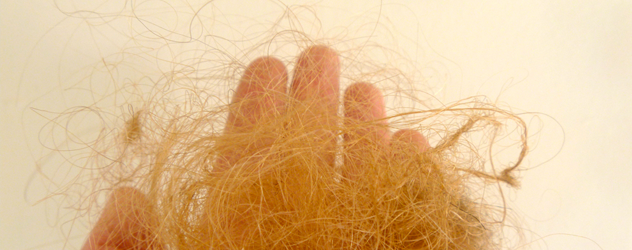Is your hair looking shorter, thinner, and falling out months after your weight loss surgery? You’re not alone.
Many bariatric patients experience hair loss in the first six months after their surgery. While it can make many patients feel self conscious and can negatively impact their self esteem, hair loss after bariatric surgery is common and doesn’t last more than six months.
Why am I experiencing hair loss after bariatric surgery?
There are two reasons why you might be experiencing hair loss after weight loss surgery: you are a gastric sleeve patient or a gastric bypass patient; or, you are experiencing telogen effluvium.
1. You are a gastric sleeve or gastric bypass patient
Hair loss is more common in patients who have had the gastric sleeve or the gastric bypass procedure. In fact, 30% to 40% of patients will experience some form of hair loss after the surgery.
The main reason why gastric sleeve and gastric bypass patients experience hair loss is because of the drastic change is because of the drastic change in their eating habits, nutrition levels, and rapid weight loss.
Lap Band patients however, lose weight gradually and have less hair loss. This is because they lose weight at a slower rate when compared to other bariatric surgery patients, and don’t suffer from a high level of nutrient deficiency.
2. You are experiencing telogen effluvium
The most common type of hair loss after bariatric surgery is called telogen effluvium.
Every day, you lose hair and you grow hair. Your hair follicles have two phases: anagen, the growth phase, and telogen, the resting phase.
All of your hair begins in the anagen phase. They grow, and then shift to the telogen phase before falling out. Do you know that 10% to 15% of your hair is always in the telogen phase? The telogen phase usually lasts 100-120 days.
Bariatric surgery however, can cause a greater percentage of your hair to shift into the telogen phase. This is because of the added stress caused by the weight loss surgery to your body. When this is coupled with rapid weight loss and a lack of nutrients, your hair falls out at a rapid rate until all the hairs in the telogen phase fall out.

How long does the hair loss last for?
Under normal circumstances, hair loss lasts for an average of 3-4 months, but no longer than 6 months.
Hair follicles aren’t damaged during telogen effluvium, so hair your hair will grow back stronger and better than before.
If your hair continues to fall out six months after your bariatric surgery with Dr Padovan, we recommend you contact our clinic at 9544 5200.
How can I minimise/prevent hair loss after bariatric surgery?
Many patients and potential bariatric patients search for tips to prevent hair loss after weight loss surgery. However, hair loss will happen after your surgery. The best you can do is to keep informed about hair loss and follow Dr Padovan’s advice and our team’s advice to look after yourself following your surgery.

Here are some ways to minimise your hair loss after surgery.
Take your protein
Protein is the building block of all your cells. This also includes the cells that make up your hair. Protein also helps with wound healing. That’s why we emphasise the importance of having adequate protein in your diet after your surgery.
Failing to meet the 60 grams of protein requirement post-surgery can leave you with more severe hair loss.
Make sure you have protein with every meal you eat. Some great sources of protein are cottage cheese, skinless chicken, and beans.
Take your bariatric vitamins
The lack of nutrients after bariatric surgery is one of the main causes of hair loss.
The best vitamins for hair loss after bariatric surgery are the bariatric vitamins we recommend for you. Since bariatric surgery restricts your food and your nutritional intake, bariatric vitamins helps your body to replace the nutrients you don’t recieve. They especially contain important nutrients for hair health such as iron.
Taking your bariatric vitamins every day will help to ensure that your hair loss is manageable.
Keep hydrated
Like protein, water also facilitates wound healing and helps you to minimise your hair loss.
We recommend drinking 2 litres of fluids every day. Make sure you don’t drink your calories by consuming unhealthy options like soft drinks.
Are you struggling to keep hydrated after bariatric surgery? Check out our tips to help you reach your fluid goals!
Take biotin and silica
Biotin is a Vitamin B Complex that promotes hair growth and prevents hair dryness. It also increases the elasticity of your hair cortex which is important for preventing hair breakage.
Silica on the other hand, prevents hair thinning and can reverse it.
When silica and biotin are taken together, they can help to prevent hair loss and can also restore your hair after the telogen effluvium phase.
Don’t exceed your low calorie meal plan
Most patients get so excited when they begin losing weight after the surgery, that they try to accelerate the process even more by further restricting their calorie intake. This is incredibly unhealthy and dangerous as it can lead to malnutrition and a greater level of hair loss.
You’re already absorbing less food and vitamins. Keep track of your eating habits, follow our guidelines and focus on being healthy as you lose weight.
Talk to our team at Emerge Surgical!
If your hair loss is causing you concern, don’t hesitate to contact us at 9544 5200.